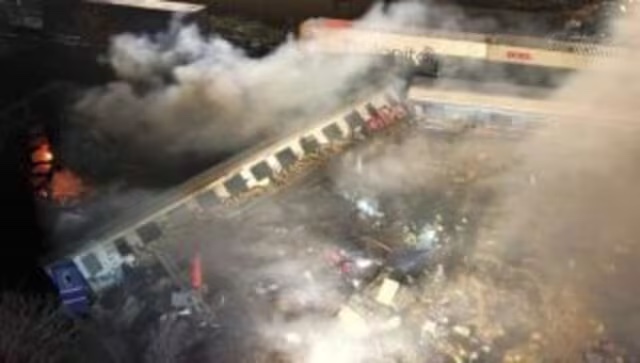
Greece’s prime minister said on Friday that he would discuss with Italy safety improvements on Greek trains operated by an Italian state company in the wake of the rail tragedy that occurred last month. Mitsotakis stated that his Italian counterpart Giorgia Meloni had accepted an invitation to talks in Athens prior to the Greek general election in May.
At a summit of eurozone leaders in Brussels, Prime Minister Kyriakos Mitsotakis told reporters, “We will have the opportunity to discuss the way in which the Italian government…will be able to support the restart of Greece’s railways in a more active and substantial way.”
“I believe we have the potential to jointly create a new future for our railways, whereby the Italian company will invest more in reliable, safer, and faster trains,” Mitsotakis stated, adding that Greece “will invest more in our network, its safety, and its possible expansion.” Mitsotakis stated that his Italian counterpart Giorgia Meloni had accepted an invitation to talks in Athens prior to the Greek general election in May.
In 2017, the state-owned Greek rail traffic services operator TrainOSE was privatized and sold to Ferrovie dello Stato Italiane in Italy, becoming Hellenic Train. This resulted in the private management of Greece’s intercity trains.
The tracks are still owned by the Greek state-owned OSE.
57 people were killed when two trains traveling several kilometers (miles) on the same track collided on February 28. It was Greece’s worst rail accident ever.
The majority of those who were harmed were college students returning from a long holiday weekend.
The disaster resulted in the resignation of Greece’s transport minister, which sparked weeks of irrational and occasionally violent protests, increasing pressure on Mitsotakis’ conservative government ahead of the election.
Three additional railway officials, in addition to the stationmaster who was on duty at the time of the accident, have been charged and could face life in prison.
However, Greece’s rail watchdog discovered serious safety issues throughout the network, including inadequate basic staff training.
Rail route associations had long cautioned the organization was underfunded, understaffed and clumsy following 10 years of expenditure cuts.
During Meloni’s visit, Mitsotakis said he would also talk to her about migration issues, which are important to both countries.